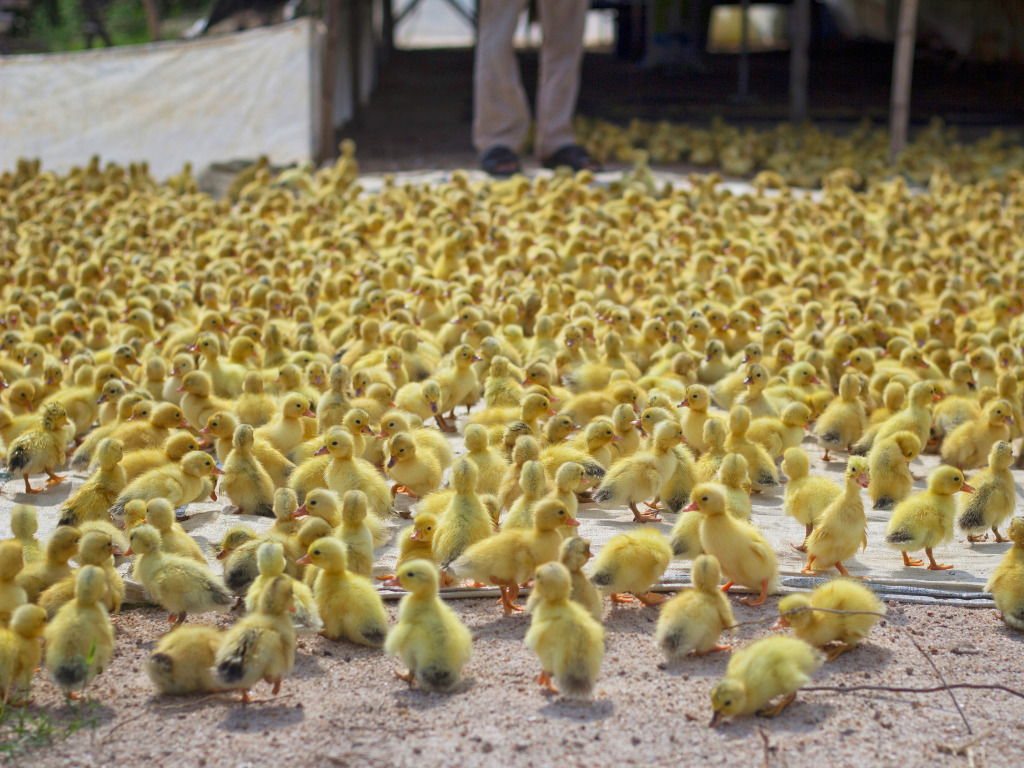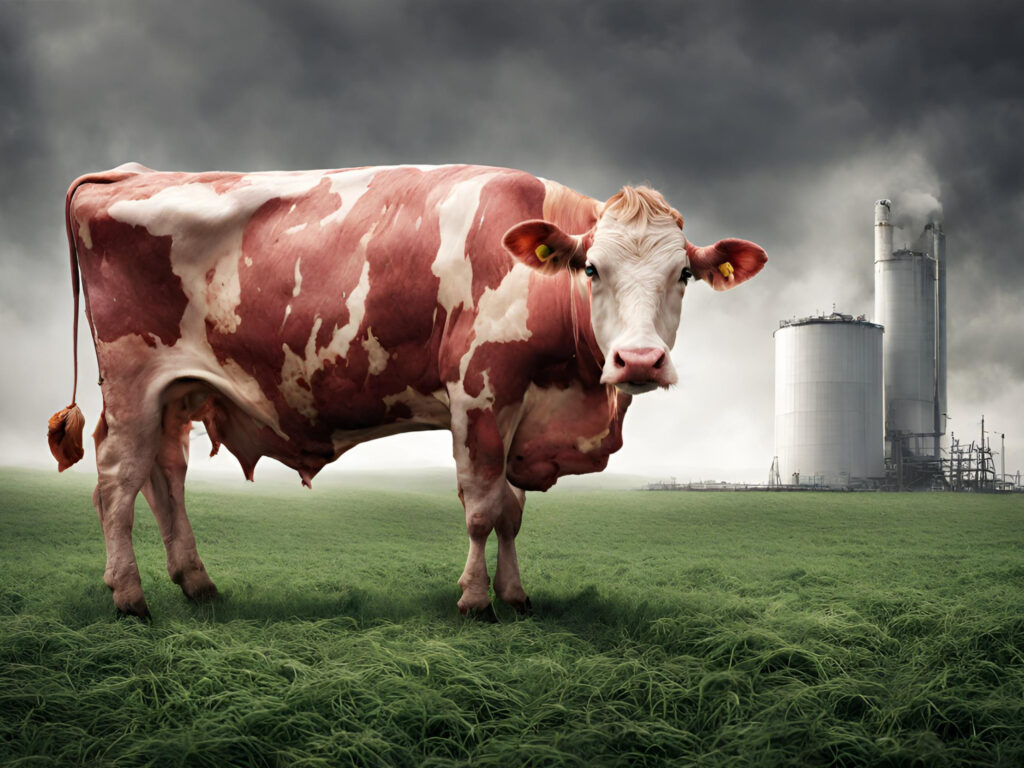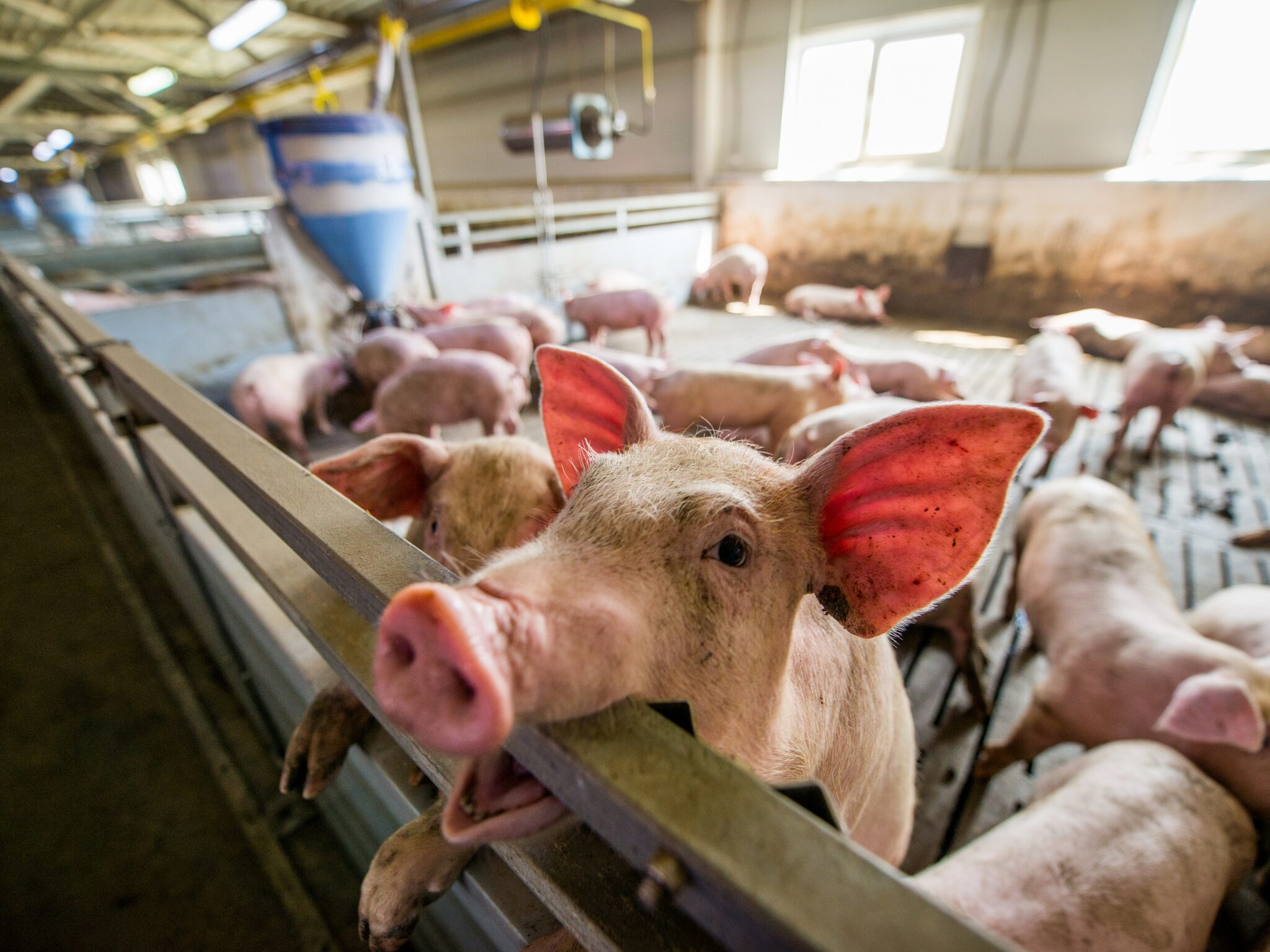Climate & Animal Activists Urge World Bank to Stop Financing Factory Farms
4 Mins Read
The World Bank’s private sector arm is facing calls from climate and animal rights campaigners to phase out its financial support to industrial livestock farming.
Friends of the Earth, Compassion in World Farming and other climate and animal advocacy groups are urging the World Bank to stop funding industrial livestock farming operations, which are a major contributor to the climate crisis and undermine animal welfare, according to the Guardian.
The coalition alleges that the International Finance Corporation (IFC) – a World Bank Group member owned by 186 member countries and focused exclusively on the private sector in developing nations – provided $1.6B to factory farming projects between 2017 and 2023.
This creates a mismatch between the World Bank’s climate pledges (it has published Paris Agreement-aligned methodologies alongside other banks) and animal welfare commitments, and its financing of the industrial livestock sector, as well as putting smallholder farmers out of business and promoting greater meat consumption, according to Kelly McNamara, senior research and policy analyst at Friends of the Earth US.
“Expanding industrial livestock production is a threat to climate, sustainable development and food security,” she said.
IFC’s numerous factory farming financing projects

In June 2023, the IFC finalised a $47.3M loan to China’s Guangxi Yangxiang, which was intended to finance four multi-storey industrial pig rearing complexes (known as ‘hog hotels’) as well as a feed mill. These farms can be 13 floors high, and combine novel tech like AI and cloud competing with traditional pig-rearing practices.
“Yangxiang has created an industrial model with multifloor pig farming as the core and strives to build a high-end intelligent ‘meat factory’,” the company says on its website. One of its managers told Reuters in 2018: “There are big advantages to a high-rise building. It saves energy and resources. The land area is not that much but you can raise a lot of pigs.”
Likewise, in 2017, the IFC invested $50M in Chinese pig farming company GXYX, which has the capacity to breed over 235,000 pigs. A year later, it pumped $23M into India’s Srinivasa Farms to support its broiler and breeding expansion. And, in 2021, it provided $50M in financing to expand the pork and poultry operations of Ecuadorian producer Pronaca. The organisation has also funded projects like chicken production in Uganda and dairy production in Pakistan.
And, a year before approving the Guangxi Yangxiang loan, the World Bank subsidiary also granted a $200M loan to agrifood giant Louis Dreyfus Company to purchase deforestation-linked soy and corn mostly for factory farms in Europe and Asia. While it was said that these crops would be sourced from farmers committed to zero deforestation, the coalition says the IFC should “stop funding the wasteful use of such crops as animal feed”.
“I’m appalled by some of these developments, which have limited space and barren conditions,” said Peter Stevenson, chief policy adviser at Compassion in World Farming. “They are not just damaging for animal welfare, but also for food security and the environment.”
Half of the world’s habitable land is used for agriculture, 77% of which covers animal agriculture (including feed crops) – but animal-based foods like meat and dairy provide 18% of the world’s calories and 37% of its protein supply. Stevenson explained that since animals convert cereal feed into meat and milk inefficiently, it would be better to grow more crops for direct human consumption and slash the amount of cereals used for feed.
IFC fails to account for financed emissions in climate targets

Livestock agriculture is responsible for 11-20% of the planet’s total emissions, and a third of the food system’s climate footprint. In fact, meat production generates twice as many greenhouse gases as plant-based foods, while using a lot more water and land – the growing of crops like soy or corn for animal feed is a key reason why.
The IFC knows this, noting that its investments in the livestock sector “seek to replace inefficient production processes with targeted and efficient practices”, calling it “a key step in reducing greenhouse gas emissions”. “IFC is committed to supporting the agribusiness sector to improve livelihoods and help people meet their nutritional needs, while taking steps to improve sustainable production by limiting use of resources, protecting the environment, and supporting animal welfare,” it notes on its website.
The organisation has committed to reducing its own scope 1 and 2 emissions by 20% by 2026 (from a 2016 baseline), but by financing large-scale livestock operations, its funding-related emissions will only increase.
The World Bank reiterated that climate change and animal welfare are central to the IFC’s agricultural investments, stating that large-scale projects can be used to develop more efficient, environmentally friendly practices. Its officials told the Guardian it strives to reduce GHG emissions in each project it finances.
But the coalition of campaign groups will be sending a letter to World Bank president Ajay Banga ahead of this month’s spring meeting, which will say the organisation must acknowledge that factory farming is a “major contributor to the twin crises of climate change and biodiversity loss” and phase out its funding of these operations.



